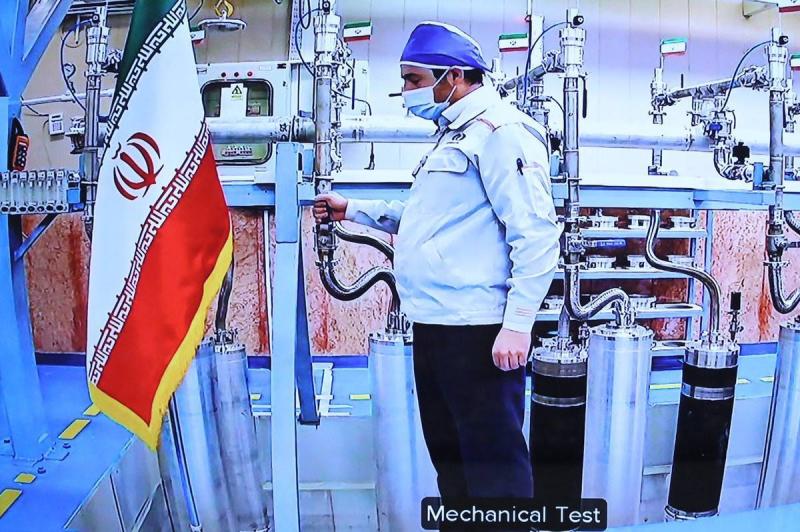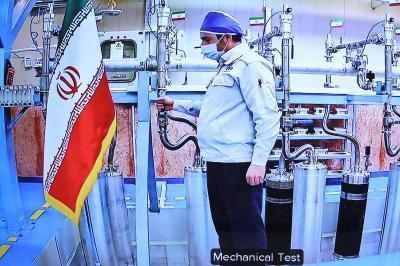The International Atomic Energy Agency (IAEA) announced on Tuesday, in a report obtained by "Reuters," that Iran has enriched uranium to a purity level of 63% at its Natanz facility, coinciding with stalled Vienna talks regarding the revival of the nuclear agreement. The report sent to member states stated that Iran attributed the increase in the enrichment level from 60% to 63% to "fluctuations in enrichment levels," according to "Reuters."
The report confirmed that "the agency's analysis of environmental samples taken on April 22, 2021, shows an enrichment level reaching 63%, consistent with the fluctuations in enrichment levels described by Iran," without addressing the reasons for these fluctuations.
Escalation by Iran
Iran announced last April that it had begun enriching uranium at 60% at the Natanz reactor, just days after an explosion at the site, which Iran blamed on Israel. Prior to that, Iran had already increased its uranium enrichment level to 20%, while the enrichment level necessary for materials usable in making a bomb must reach 90%.
The nuclear agreement signed by Iran in 2015 with global powers limited Iran's nuclear ambitions in exchange for lifting international sanctions imposed on it, setting the allowed enrichment level of uranium at 3.67%. Iran and global powers have been meeting in Vienna since early April to negotiate the steps necessary to return Tehran and Washington to full compliance with the nuclear agreement signed in 2015, from which former U.S. President Donald Trump withdrew in 2018.
Deadlock
Iranian state television "Press TV" reported earlier on Tuesday that the Vienna talks aimed at reviving the nuclear agreement have reached a "deadlock," due to the U.S. refusal to remove 500 Iranian individuals and entities from the sanctions lists. The channel, citing sources, stated that "Washington's insistence on keeping the individuals and entities on the sanctions list will prevent Tehran from benefiting from the economic privileges granted under the nuclear agreement signed in 2015 with the major powers."
It pointed out that this situation "will hinder Iran's normalization of its trade relations with the rest of the world, contrary to Article 29 of the nuclear agreement."
For its part, the French Foreign Ministry stated on Tuesday that there is still much work to be done to revive the nuclear agreement with Iran within a very tight timeframe.
Other Agreements
U.S. State Department spokesperson Ned Price confirmed at a press conference on Monday that the U.S. wants to negotiate other agreements after Iran returns to the nuclear agreement. He stated, "We discussed in Vienna the request made by President Joe Biden for the U.S. to return to the nuclear agreement, which is compliance for compliance," noting that this "will not be enough, we want to negotiate other agreements after returning to the nuclear deal."
He added, "Our analyses still confirm that there are challenges and gaps between Iran's current position and where it needs to be regarding the Vienna talks," pointing out that Tehran's deviation from the Joint Comprehensive Plan of Action (the official name of the nuclear deal) limits the IAEA's operational capabilities. He continued, "We have a clear idea of what Iran needs to do to return to the nuclear agreement, which is to comply with the negotiated monitoring systems, and thus we must remove sanctions unrelated to the Joint Comprehensive Plan of Action."




